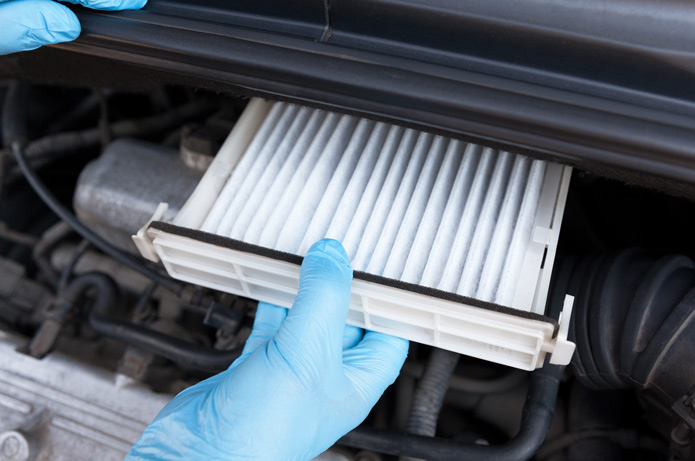Magazine
Minimising the effects of hay fever
- The difficulties
- Can you take medicine?
- Other practical measures
The difficulties
Hay fever is a real challenge for as many as one in five drivers as the annual cycle kicks in. Adding to the misery is the fact that not only does the period of time that the level of pollen is high seem to have lengthened in recent years but, when behind the wheel, drivers are also exposed to air pollutants that can have a similar adverse effect on a sufferer’s eyes, nose and throat.
This naturally makes driving more demanding, as swollen eyes, sneezing and a runny nose add another potential hazard to the day-to-day difficulties that drivers have to deal with, such as the poor condition of many roads, increasing levels of congestion and the impatience of other road users.
Can you take medicine?
As a result, many hay fever sufferers will resort to taking some sort of medicine, whether herbal or over-the-counter from a pharmacy, but they need to be wary of the potential side-effects, particularly if it will make them feel sleepy or less attentive, which are obviously the last sensations you want to experience when getting behind the wheel!
So, if you are prone to the effects of hay fever, the first rule when using medicine to relieve it is to check the packaging and accompanying documentation or, failing that, check with a pharmacist, to make sure that there are no side effects that will impair your ability to drive. If there are and there is no alternative that provides you with the necessary relief, the clear message is not to get behind the wheel, so if you absolutely need to be somewhere, get someone to drive you!
Other practical measures
However, another practical measure that will ease the symptoms caused by hay fever and also reduce the impact of airborne pollutants in general, is to ensure the cabin filter in your car is changed regularly, or at the very least, in line with your vehicle’s service schedule.
The reason that this is important is because cabin filters are extremely effective at filtering out tiny particles such as pollen, which means that, providing the filter is not clogged – hence why it should be changed at regular intervals – it can minimise the pollen in the cabin to a level that most hay fever sufferers can comfortably tolerate.
Cabin filters, however, provide further benefits, such as protecting the vehicle’s air conditioning system, and carbon activated versions even filter out bad-smelling odours and hazardous gases, such as ozone, smog and exhaust gases. Others even neutralise allergens and bacteria, which is naturally beneficial to not only the driver, but all of the vehicle’s occupants.
Cabin filters generally consist of a first filter medium that keeps out coarse particles, which is supported by a filter fleece that increases its dust retention capacity. Those with an active carbon layer separate out vapours, odours and harmful gases, while the most effective media removes fine dust, including micro-particles with diameters smaller than 2.5 m, which is just 0.005mm!
If you would like additional filtration within the car cabin, the recent pandemic saw many companies releasing dedicated vehicle air purifiers, most of which are either powered through the 12-volt socket or a USB port inside the car. Many incorporate medical grade filters to ensure the best possible air filtration, so if you are a chronic hay fever sufferer, a dedicated machine might be worth the investment.
So, despite the day-to-day difficulties presented by the hay fever season, the ongoing maintenance of your car, alongside considered assessment of your condition, will allow you to avoid at least some of the summer misery.

